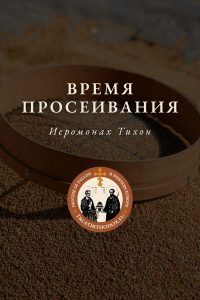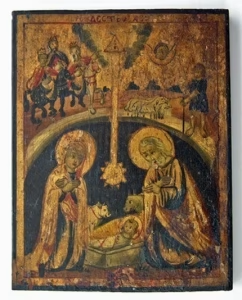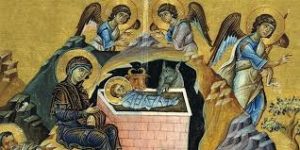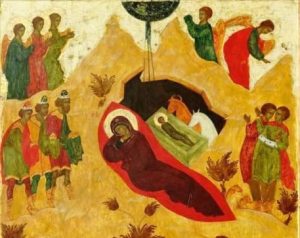Since it’s that Time of Year… “Metropolitan” George Khodr “On Ramadan”
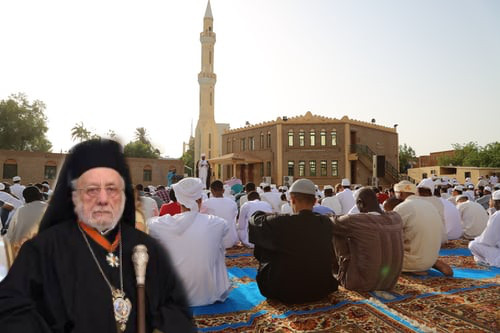
A “Metropolitan” in Lebanon of the Patriarchate of Antioch airs his heretical views of Ramadan
The highlighting is my own. Most of his statements don’t really need interpretation as the are so heretical on their very own. My comments are in red. I do understand that he lives amongst Muslims, but there is a big difference between showing respect to people and between adopting their faith! See for yourselves the article:
Ramadan Has Arrived
Ramadan is a month for all of us, whether we refrain from food or refrain from sin. It is not right for a Muslim to be practicing his asceticism and for us to not support him with prayer. He believes that his fast was decreed for him. You should ask blessings, health, and purity for him so that he can reach the highest point of his struggle and benefit all people through his nighttime prayer.
Support him in prayer or pray that he finds Christ? How could a Muslim benefit all people through his nighttime prayer?
It saddens me that some of us welcome the iftars to which our friends invite us without our hearts going to the fast itself, that is to turning away from this world and its pleasures insofar as we are happy for Muslims to draw near to God and His generosity.
We accept Muslims because God accepts them in the purity of their worship.
The month of faith and preservation / There is triumph in it for those who wish to accept.
What is this kind of triumph from Ramadan?
These are the qualities that a profound believer seeks and they transcend the outward price, which is restraint from what is ugly, and at that point only God remains. You become like Mary, who said, “I have vowed a fast unto the Merciful One, and may not speak this day to any mortal” (Surat Maryam 26). If you have achieved purification, you have achieved your ascent to God who gives you what to say to people or who gives you silence to save you from your emptiness.
For those especially dedicated to worship, Ramadan becomes withholding the senses from sins and a fast of the heart from everything but God. As for the purely outward image of fasting, it is nothing and serves no purpose. The special characteristic of spiritual sacrifice in this struggle is described by one who said, pleadingly, “My God, the beggars have stopped at your door and the poor have fled to your refuge. The ship of the wretched has stopped at the shore of your generosity, receiving passage to the field of your mercy and grace. My God, if in this noble month you only are generous to those who are sincere with you in their fasting, then who is there for the dedicated sinner who drowns in the sea his sins and transgressions?” “My God, if you only accept the diligent, who is there for the negligent? My God, those who fast have profited, and as for us your sinful servants, have mercy on us and bestow your grace upon us. Forgive us all, by your mercy, most merciful one.” This is the Muslim’s window on all-encompassing love.
What is the purpose of the fast? Asceticism, abstinence, and austerity are exercises by which God makes possible for man what the Christians call grace, which is the divine power in the human heart or, as al-Ghazali says, what God causes to leap up within one’s breast. Secondly, the fast is a focus on the Lord himself and thus internal conditions make Ramadan a gateway to heaven. This means that its true purpose is for the one fasting to take on one of God’s attributes, which is steadfastness insofar as the divine steadfastness is reflected in a human being.
The Imam Ghazali said, “Fasting has three levels: the fasting of ordinary people, the fasting of the select, and the fasting of the select of the select.” Ordinary people’s fasting is following known obligations and it is summarized by refraining from desire for food and sexual restraint. The fasting of the select is refraining from all sins such as averting one’s gaze from what is blameworthy, controlling the tongue, refraining from listening to unpraiseworthy things “because that which it is forbidden to say is also forbidden to listen to.” A beautiful saying of al-Ghazali’s is “one should not eat permissible food in excess, to the point of filling one’s belly, when breaking the fast because there is no vessel more detestable to God than a belly full of permissible food.” His advice is that one fasting should eat what he would eat every night if he were not fasting.
As for the select of the select, their fast is “the heart’s fasting from cares… and worldly thoughts and abstaining from everything other than God.”
If Muslims were to write new Ramadan literature, they would have to think in this Middle East that the Christians who love them, even if they do not fast with them bodily they are still close to them, since if each group of us is elevated spiritually, the other is elevated together with them, or at least this is what one imagines. At the deepest level, one does not look at dogma, but rather at human beings. The goal is human beings coming together to the point of love and not just the rapprochement of two sets of dogmas. What was called Muslim-Christian dialogue targeted dogmas. For that reason, it had little success and some scholars rejected it because of the difficulty of undertaking it and began to talk about the ethical aspect in dialogue. The truth is that there is another aspect, which is the coming together of people who seek God in love and who want the other to be elevated along with them. In their intense focus on God during the fast, is there anything to prevent Muslims from carrying Christians along with them and not becoming prisoners of politics?
Political communication may be extremely difficult because it is focused on competition, denying the other his right, and a lack of vision for national unity. This is expressed by saying “I am more important than you and greater than you.” Politics is always focused on the ego, and the ego always denies the other’s ego. All that is based on humans is human, which is to say that within it are people’s desires. But if we lay aside politics and its struggles within a religion or within multiple religions, and we focus the heart and mind on God in a continuous Ramadan or in Lenten fasting, we will feel that we are human beings capable of unity and coming together and that we are in principle a single society.
The outward, organizing form of this society is that it is a civil society. The search for this is ongoing, without a limit to the expression. In sum, it is for us to be a religious society that, in so being, does not have a political aspect. Or, if it must be so organized, it must submit to civil laws without sectarian reference.
What is important is for us to be free of all vainglory and that we should not strive for what pertains to this world. When will we turn in this Ramadan direction?
If, during Ramadan, you are among the select or the select of the select, to the point of reaching God, look at His servants in the way that He does, that is that they are His children, according to the Christian terminology. No matter what your language, God is the one who shelters you and He calls all those under his shelter unto Himself. I do not only mean on the last day. We are drawn to Him at all times through His mercy and loving-kindness.
Through bodily abstinence, through spiritual abstinence, or through both of them, we shall enter Ramadan together in perfect brotherhood.


